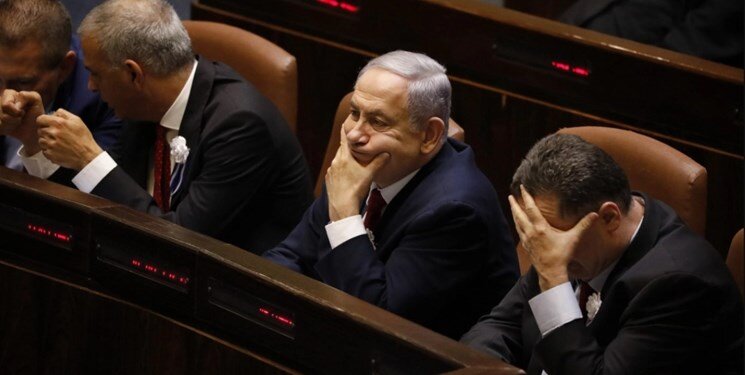Israel strategy on Iran failed: ex-Israeli official

TEHRAN – A former senior Israeli intelligence official has said Israel’s strategy of pushing for economic sanctions and an American military option vis-à-vis Iran has ended in failure.
The former official, Tamir Hayman, who served as the head of the Israeli military intelligence, pointed to the failure of Israel’s basic strategy against Iran, which is to impose severe economic sanctions and develop a plan for an American military deterrence.
He pointed out that “if Iran develops a nuclear bomb, we will enter for the first time a situation in which there is a potential existential threat to Israel,” according to Lebanese news website El Nashra.
In an interview with Haaretz, he said, “The new government must realize that the current strategy is not successful, and that the political level in Israel is aware of the seriousness of the Iranian nuclear threat, but it shows reassurance in dealing with it, and there is enormous embarrassment and strategic lack of perseverance that I cannot understand.”
He added, “The sanctions policy, in the wake of the United States' withdrawal from the nuclear agreement, did not target Iran's incentives, and Iran's political and economic isolation is not real isolation. It receives economic support from Russia and China. They do not see themselves economically isolated.”
Hayman continued, “Anyone who has read the recent national security strategic document of the United States understands that the Americans do not intend to use military force in order to overthrow the regime. They wrote that publicly, and this is no secret, and the current strategy that is based on these two legs - sanctions and deterrence - has collapsed, and it does not exist.”
The former official stressed that “the United States was prohibited from withdrawing from the nuclear agreement, and this is contrary to the position of the Israeli prime ministers in recent years, Benjamin Netanyahu, Yair Lapid and Naftali Bennett.”
He also said that “Iran would have adhered to the original agreement until its expiration, in the year 2030.”
Over the last six years, Israel has been a vocal critic of the 2015 Iran nuclear deal, officially known as the Joint Comprehensive Plan of Action (JCPOA). And Prime Minister Netanyahu has openly bragged about pushing former U.S. President Donald Trump into quitting the deal. Israel has also fiercely opposed a U.S. return to the JCPOA under President Joe Biden.
An advisor to the Iranian negotiating team has said that it is the United States that should return to its commitments under the 2015 Iran nuclear deal from which Washington withdrew in 2018.
Mohammad Marandi, also a professor of American studies at Tehran University, said in an interview with Al Mayadeen that the root cause of the nuclear deal has something to do with the U.S. view regarding that deal, Fars News reported.
Also, Kamal Kharrazi, the head of Iran’s Strategic Council on Foreign Relations (SCFR), an advisory body to the Leader of the Islamic Revolution, has recently said that Iran is ready to return to the JCPOA.
Speaking at the Tehran Dialogue Forum, Kharrazi said, “Iran is ready to return to its JCPOA commitments. Many problems have so far been resolved. Only the safeguards issue remained which we hope will be resolved during the visit of the [IAEA] experts.”
Marandi said that the IAEA-Iran talks indicate the possibility of reaching a solution. “Negotiations between Iran and IAEA indicate the possibility of reaching a solution, but it is a political decision. Iran has no problem with Europeans, Russians and Chinese; but the problem is in America's perspective,” he said.
Regarding Iran's ability to build nuclear weapons, he emphasized that Iran does not want such a thing and the Zionist regime [Israel] is not in a position to cause significant damage to Iran's peaceful nuclear infrastructure.
